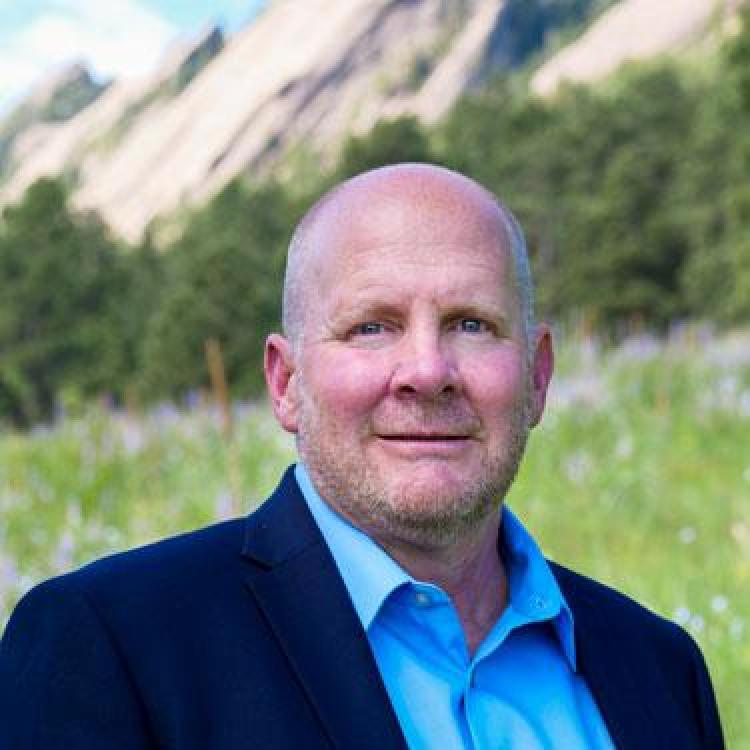Psych profs invest honorarium in future student success
This new award honors excellence in research conducted by underrepresented students in psychology and neuroscience
Angela Bryan and Kent Hutchison have donated $6,000 to start a new award for underrepresented students completing an outstanding honors thesis in psychology and neuroscience at the University of Colorado Boulder.
The Building Equity in the Community of Academics (BECA) award came about after Hutchison donated his honorarium for winning a 2020 CU Boulder Distinguished Research Lectureship.

Angela Bryan
“We decided that an award for an outstanding honors thesis would motivate people to get into the honors program,” says Hutchison, professor of psychiatry at the University of Colorado School of Medicine. “The idea is to find and foster the development of Latinx students, in terms of bringing them up through academia’s ranks.”
The fund is meant to support students who, by way of their geographic area or socioeconomic background, are historically underrepresented in the field of psychology and neuroscience, as well as students who have faced unusual adversity.
Hutchison, formerly a professor of psychology and neuroscience at CU Boulder, and Bryan, professor of psychology and neuroscience at CU Boulder, felt inspired by two Latinx students who were the first members of their families to go to college. Working with Bryan and Hutchison’s research teams, the undergraduates assisted with research grants and completed honors theses that made them more competitive in their graduate school applications.
“We know that getting underrepresented students into graduate school and then into academia is generally problematic,” says Bryan. “You have to get them in the pipeline. Getting them in the pipeline means giving them opportunities and encouragement to do research as an undergraduate.”
Both Bryan and Hutchison completed honors theses as undergraduates. These experiences affirmed their achievement and shaped their early research careers. Despite their significance, Bryan notes she almost missed the opportunity.
“An academic advisor in the psychology department at UCLA said, ‘Have you thought about doing an honors thesis?’ And I said, ‘What's that?’” says Bryan. “It reinforces this idea that you have to tell people that these opportunities exist or they're not going to take them.”
Making informed choices
Hutchison and Bryan, who are married, research the benefits and risks of cannabinoids and cannabis. Their goal is to help people make informed choices about the drug.
The idea is to find and foster the development of Latinx students, in terms of bringing them up through academia’s ranks.”
“If there's something you want to accomplish, like relief of pain or anxiety, you want to balance and evaluate the risks and the benefits,” says Hutchison. “For 40 years, all of the (cannabis) research focused on the risks. There was no research on the benefits because it was an illegal drug.”
Hutchison compares the effects of various types of cannabis and cannabinoids on cognitive outcomes, anxiety and pain. He began to explore the topic after watching his conservative mother find relief from a chronic pain condition by using cannabis.
“We’re looking at the benefits and the risks with that kind of person in mind—the 70-year-old who is dealing with cancer or chemotherapy induced peripheral neuropathy,” says Hutchinson. “They want to know the risks and benefits like anything else, and there still is very little data.”
To fill that gap, Hutchison recently took a research faculty position at the CU School of Medicine. He plans to launch a center that will generate more research and data on cannabis and cannabinoids.
“I transitioned from Boulder to Anschutz to focus on the research and getting a center grant to do this work,” says Hutchison, who will submit a grant application to the National Institutes of Health in September. “It was important for such a big grant to have the medical school be the main base, but also work in tandem with people in Boulder.”

Kent Hutchison
One of those collaborators is Bryan, whose research examines the public health implications of cannabis and cannabinoids use, including its influence on insulin function, glucose metabolism, diet and physical activity. Her interest in helping people gain access to information began in 2016 when she navigated treatment for breast cancer.
“For post-surgical pain, I didn't want to take opiates and I told my doctors that,” says Bryan. “It was frustrating because my doctors didn't know what to tell me. If I didn't have Kent’s knowledge, had not watched his mom and had some professional knowledge on the topic, I don't know that I would have been able to do it. Your average cancer patient is not going to have those resources.”
Change from the ground up
Bryan and Hutchison recognize that cannabis has a problematic history that includes disproportionate imprisonment of individuals in underrepresented groups who used or possessed cannabis. The BECA award is one attempt to acknowledge the inequity.
“Cannabinoids and cannabis were made illegal in the first place as an attempt at keeping Mexicans out, suppressed or in jail,” says Hutchinson. “There’s an important connection for us in wanting to recognize the history of racism in our research.”
They also want to remove barriers that discourage underrepresented students from knowing about research opportunities and participating in them.
Right now, they are only able to fund one student, but they’re hopeful that can be expanded in the future.
“The award is about trying to do something in our own small, individual way that hopefully makes a difference,” says Bryan. “I know that one scholarship to one student a year won’t change the system. But if everybody tried to do something like this, then maybe it would.”
“Maybe change will have to come from the ground up.”

